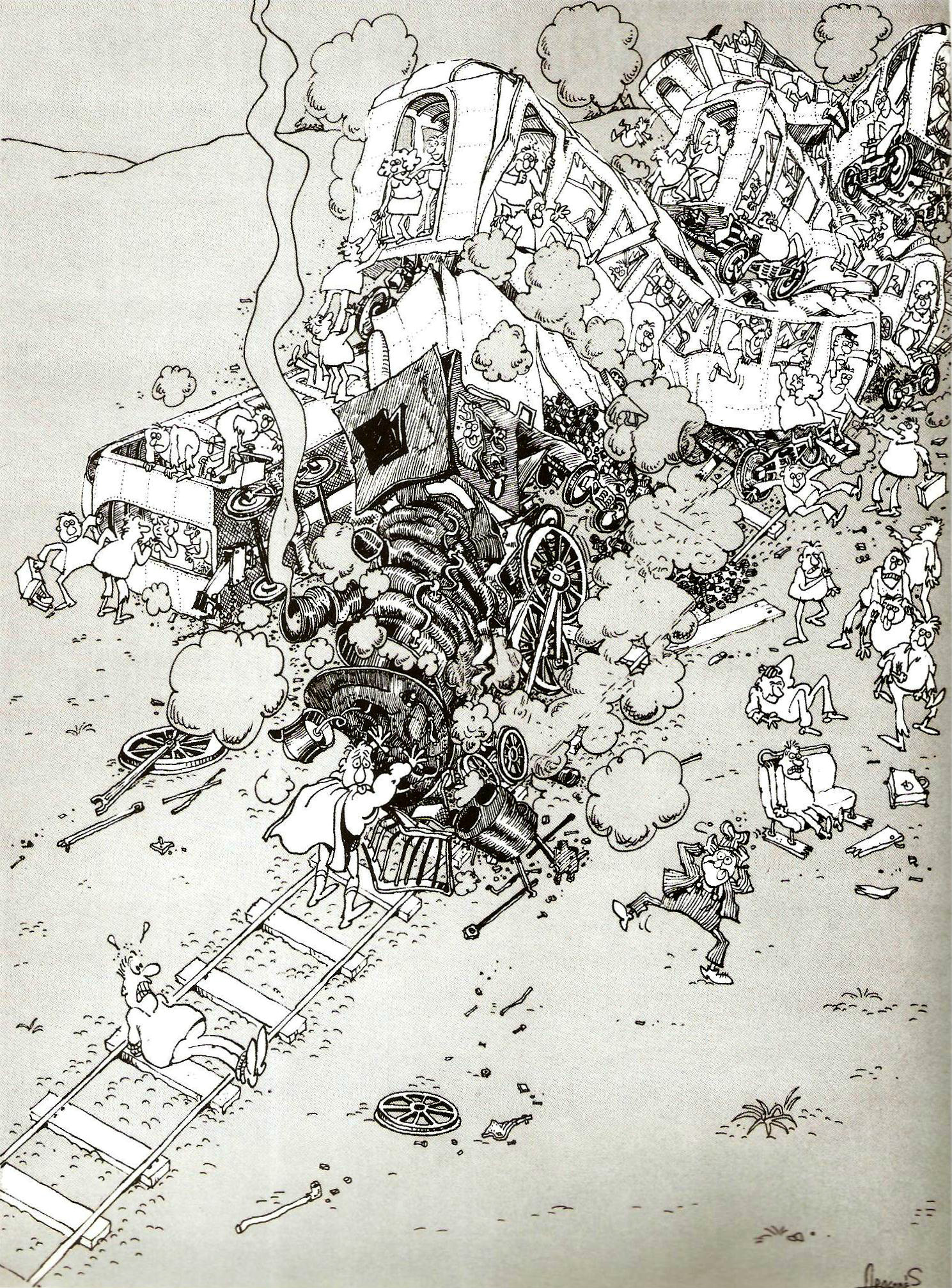
From Mad #172 (1975)
Sergio Aragones has been with Mad Magazine since 1963. His ability to convey an idea based exclusively on art and body language without needing to write a single word helped him become one of the artists most associated with the magazine. Aragones has created thousands of tiny comics hidden in the margins of many issues. He also wrote and drew an ongoing series titled “A Mad Look At…” In a 1975 two page comic titled “More Powerful Than a Locomotive,” Aargones finally took on Superman.
This page, which shows Superman attempting to save the life of a man tied to the railroad tracks, shows the outcome of the Man of Steel not thinking through the physics of the situation. While he may be strong enough to stop a train in its tracks, that doesn’t mean that the train will just come to a smooth stop. The crash resulting from Superman’s error could be full of horror, but Aragones chose to play up the humor of the situation. He did this by keeping keeping the drawings of the people sketchy and, for lack of a better word, cartoony. His detail work on the train itself is in stark contrast to the human figures pouring out of it. The joke here is on Superman’s hubris, not the people’s pain, and it works.


Jeff – Thanks for highlighting Sergio Aragones – what a talent! It’s so easy to dismiss his style of cartooning as simplistic. Your example above demonstrates the man’s genius!
This is a pretty brilliant one-page critique of hero fiction in general. Plan your college courses right and you can spend whole semesters discussing exactly this.
1. Sounds great! What are your courses? What are you studying in general?
2. deconstructing superhero fiction: does it hurt sometimes? I mean, I am such a huge fan of that particular genre, I am sure it could be a painful experience, sometimes. One reason why I love Watchmen, but cannot reread it too frequently 🙂
heh, I graduated a while back. But I took, if I recall, an Epic Science Fiction and Fantasy course, Contemporary American Writing and Film course, and I know some others.
(It’s always classes that don’t really count much toward your degree even though they’re totally English courses and maybe this is why I took a leisurely 7 years to graduate.)
As with any way-too-close analysis of a medium or genre, it both hurts and helps. It all depends on how much you let the philosophy of a work interfere with your own philosophies and enjoyment thereof.
We need to discuss more MAD Magazine on this site! I know it isn’t comic books per say but…..I gotta think a lot of people on here are influenced by the classic run. I know I have.